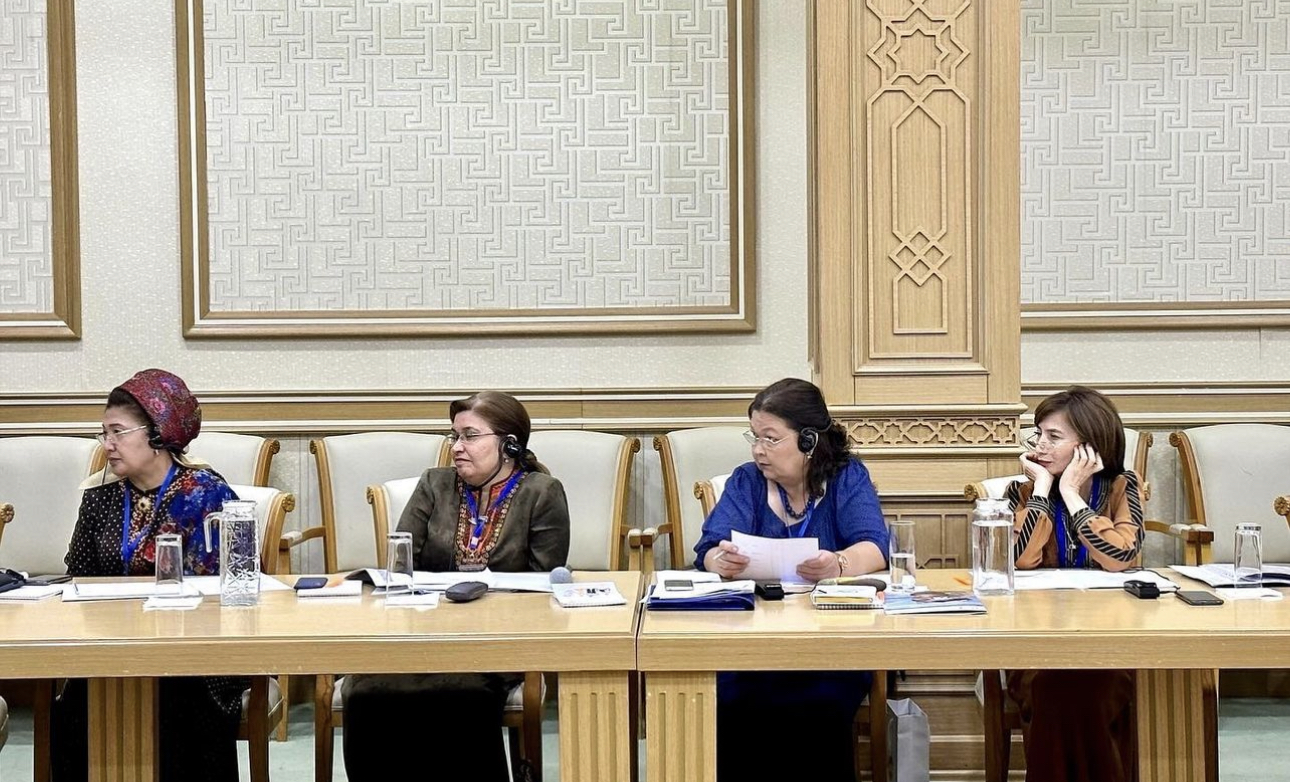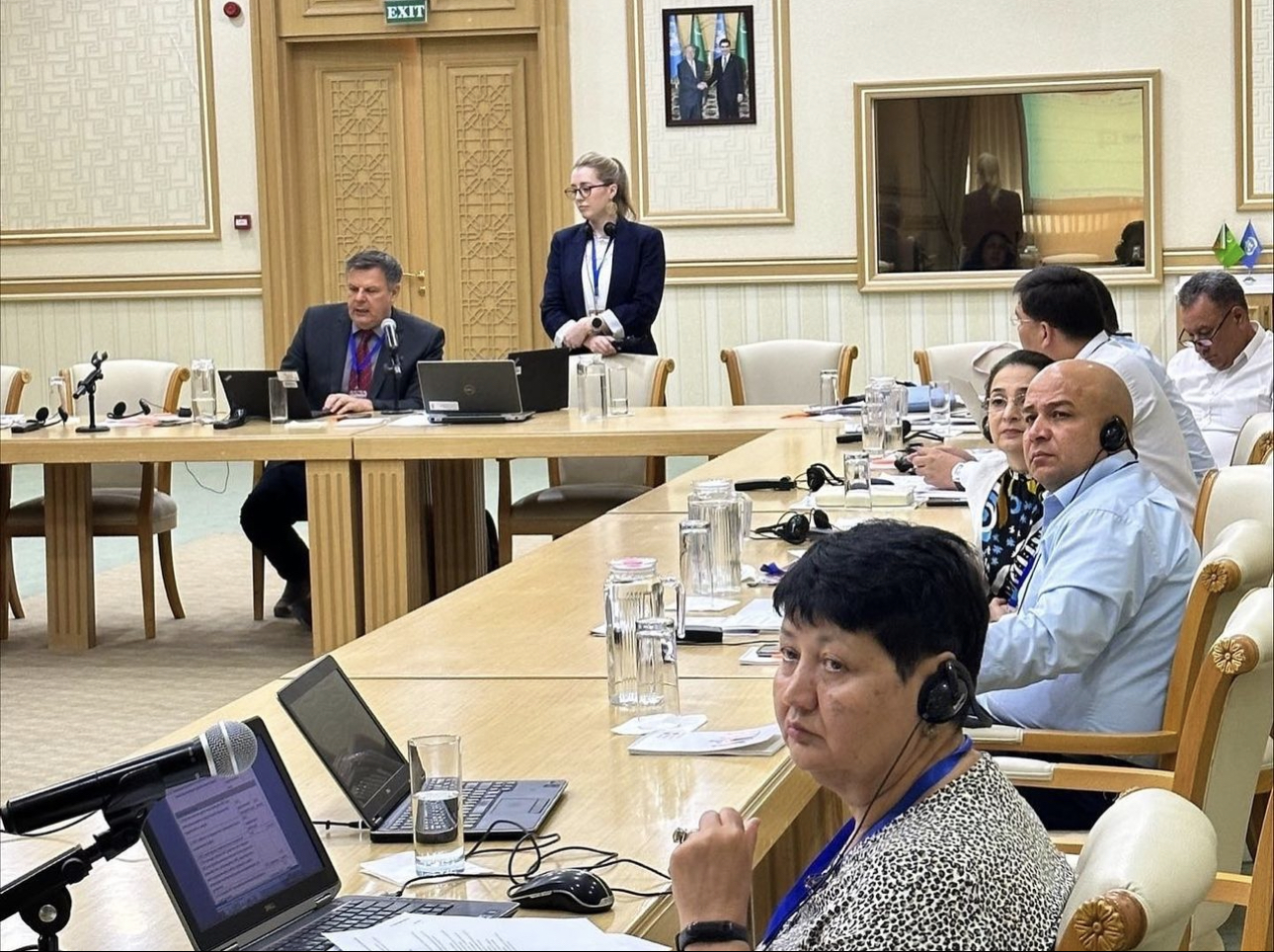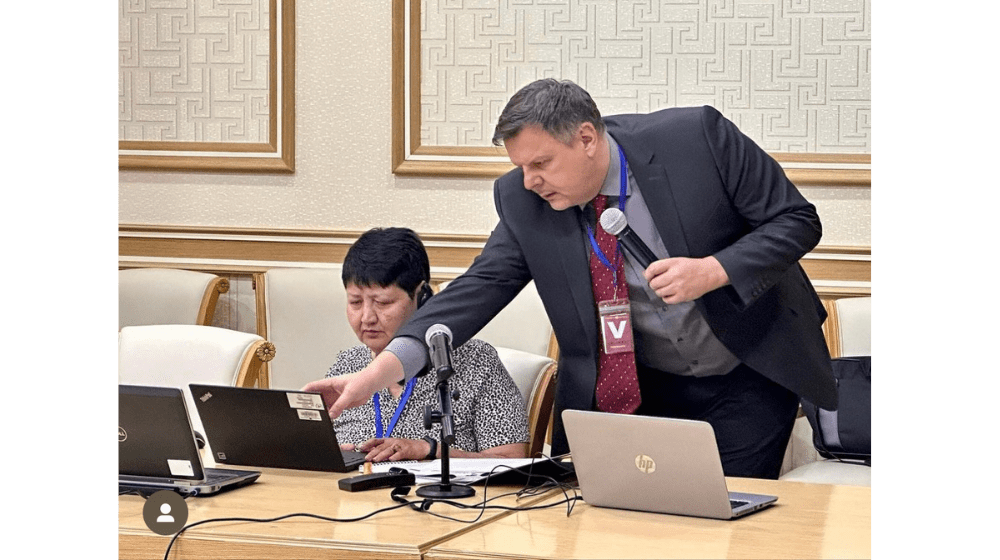Ashgabat 6-8 June 2023 – The United Nations Population Fund, UNFPA, has joined the initiative to review, analyze and redesign the business processes of the national Civil Registration and Vital Statistics System (CRVS) in Turkmenistan, that is technically led by the United Nations Economic and Social Commission for Asia and the Pacific (ESCAP), coordinated by the UN Resident Coordinator Office in Turkmenistan, supported by UNICEF and WHO.
The review was conducted using the CRVS Systems Improvement Framework, an approach designed to help CRVS stakeholders analyze and redesign existing business processes and the associated operational capabilities. The review is to help to improve the performance of the CRVS system, implement a new software, support integration of existing digital systems and ensure high quality data for strategic planning and monitoring of development targets.
For the purposes of the review, the national team consisting of representatives of all main CRVS stakeholders including the Ministry of Health and Medical Industry, Ministry of Justice, Ministry of Internal Affairs, State Statistics Committee, Civil Register Office, State Migration Service, as well as international organizations such as UNESCAP, UNRCO, UNFPA, UNICEF and WHO got together and discussed the prospects for the improvement of the CRVS system in Turkmenistan, digitalizing the business processes and generating high quality vital statistics to plan and monitor development targets.
Civil Registration and Vital Statistics play a key role in facilitating progress towards the Sustainable Development Goals. A well-functioning CRVS system is the best source of continuous and up to date information on birth, death, marriages, divorces and other vital statistics. This data is crucial for understanding population dynamics and trends, which are necessary for effective policy planning, resource allocation, and monitoring of the SDGs. As such, solid CRVS systems enable policymakers and development practitioners to address inequities and ensure that no one is left behind in the pursuit of the SDGs.
“UNFPA with other UN Agencies welcomes the readiness of the Government to work further on the improvement of the CRVS system in the country, and we also stand to provide UNFPA’s support in this important initiative. UNFPA leverage its expertise to generate and use accurate and timely population data for development and continue to collaborate with government, statistical offices and institutions and UN agencies, to test and scale innovative solutions to strengthen robust CRVS systems that ensure every woman and girl are counted and protected throughout their lifetime” underlined Ms. Ayna Seyitliyeva, UNFPA Head of Office in her presentation.

Dr. Chloe Harvey, ESCAP Associate Population Affairs Officer highlighted “We have had a very productive 3-day workshop with national CRVS stakeholders in Ashgabat, in which we have been conducting extensive consultations and building capacity in implementation of CRVS business process improvement. Well-functioning and universal CRVS systems provide the foundation for legal identity which can ensure access to essential public services, social protection and human rights. We look forward to continue working with UNFPA Turkmenistan to use the results of this project to inform the ongoing strengthening of the national CRVS system”.

The results of the review in Turkmenistan will be outlined in the final report that will provide a number of recommendations to improve the existing system of CRVS processes with this focus on births and deaths registration. The outcomes and recommendations coming from the review will be presented at the high-level meeting with key national stakeholder ministries and agencies on 20 July 2023 for validation. The review is to evoke focused follow up actions and more coordinated cooperation of national actors and support from international organizations. The assessment of other vital statistics will be planned further.
Additional information on UNFPA role in CRVS globally:
UNFPA, the United Nations sexual and reproductive health agency, has become the new institutional host of the Centre of Excellence for Civil Registration and Vital Statistics. The Center of Excellence, a global resource hub, has been hosted by the International Development Research Centre (IDRC) since December 2015 supporting national efforts in 67 countries to develop, strengthen and scale CRVS systems that work for all, especially women and girls.
UNFPA has a long history and strong tradition of supporting the strengthening of population data systems over the last 53 years. UNFPA seeks to ensure that no one is left behind, and calls for protecting and promoting human rights for all, particularly for those left behind. UNFPA recognizes that population data and demographic evidence are core facilitators and accelerators of rights and choices for all. By ensuring the universal, permanent, and continuous registration of vital events across the life course, CRVS systems not only advance human rights but also form an important foundation for follow-up and review of policies and public services.
UNFPA combines expertise across gender and human rights, sexual and reproductive health and rights, as well as population data systems and policies. It is therefore well-positioned to support integrated and human-centered civil registration systems, in strong partnership with UN member states, civil society partners and its UN sister organizations, as a critical tool to advance human rights, societal inclusion and sustainable development progress.
United Nations Economic and Social Commission for Asia and the Pacific (ESCAP)
ESCAP has been providing technical assistance to its members and associate members in the implementation of the Regional Action Framework on CRVS in Asia and the Pacific adopted by governments of the region in conjunction with the Ministerial Declaration to “Get Every One in the Picture” and the Asian and Pacific Civil Registration and Vital Statistic Decade, 2015-2024 (CRVS Decade), which was proclaimed at the Ministerial Conference in November 2014.
The Regional Action Framework outlines goals and targets to support the achievement of the shared vision that, by 2024, all people in Asia and the Pacific will benefit from universal and responsive CRVS systems that facilitate the realization of their rights and support good governance, health and development. Notably, Goal 2 on the provision of legal documentation reflects the importance of CRVS systems in legal and administrative purposes, including the provision of social protection and legal identity.
The midterm reports submitted by countries at the midpoint of the CRVS Decade demonstrated the need for greater efforts to accomplish the vision of universal and responsive CRVS systems. Additional calls for improved CRVS systems have been made at the global level as part of the United Nations Legal Identity Agenda, which emphasized the foundational role of civil registration in legal identity systems.
During 2021-2022, ESCAP conducted similar analyses of birth and death registration processes in Niue, Maldives, Vanuatu, and Samoa and other development partners have implemented this approach in additional countries across the world.
Read about: United Nations Economic and Social Commission for Asia and the Pacific (ESCAP)
For more information, please contact:
Dovran Yamatov
UNFPA National Programme Analyst on Population and Development
Ogulgerek Annayeva
UNFPA Communications Analyst
About UNFPA: UNFPA's mission is to deliver a world where every pregnancy is wanted, every childbirth is safe and every young person's potential is fulfilled


